
SEO for beginners can seem a bit overwhelming. I used to think that SEO was a scary and complicated dark art that only computer geniuses could crack. While it is true that the SEO rabbit hole can get deep, even doing basic improvements to your content using search engine friendly tactics can bring benefits to your business over time.
In this article I will talk you about the very basics of SEO and how you can do a basic keyword research for your business.
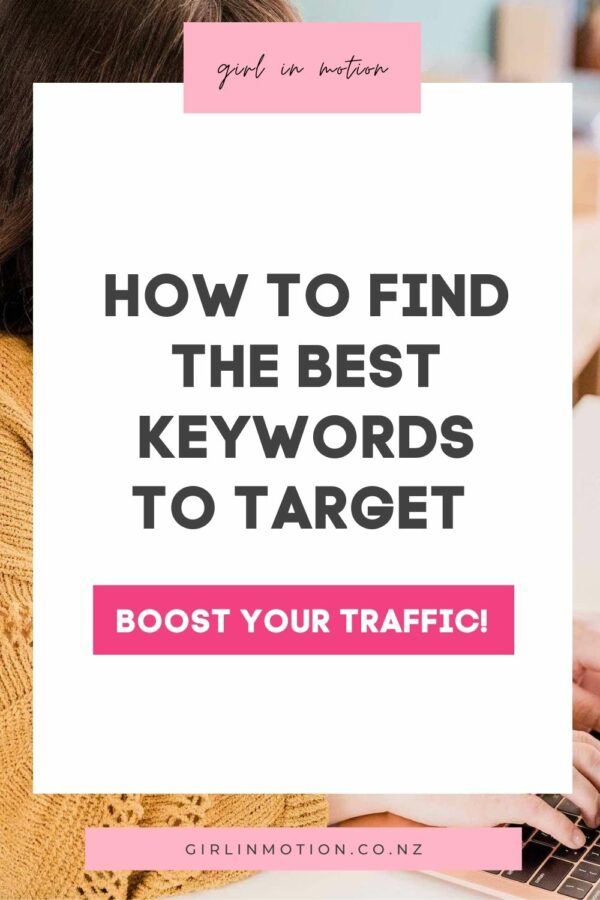
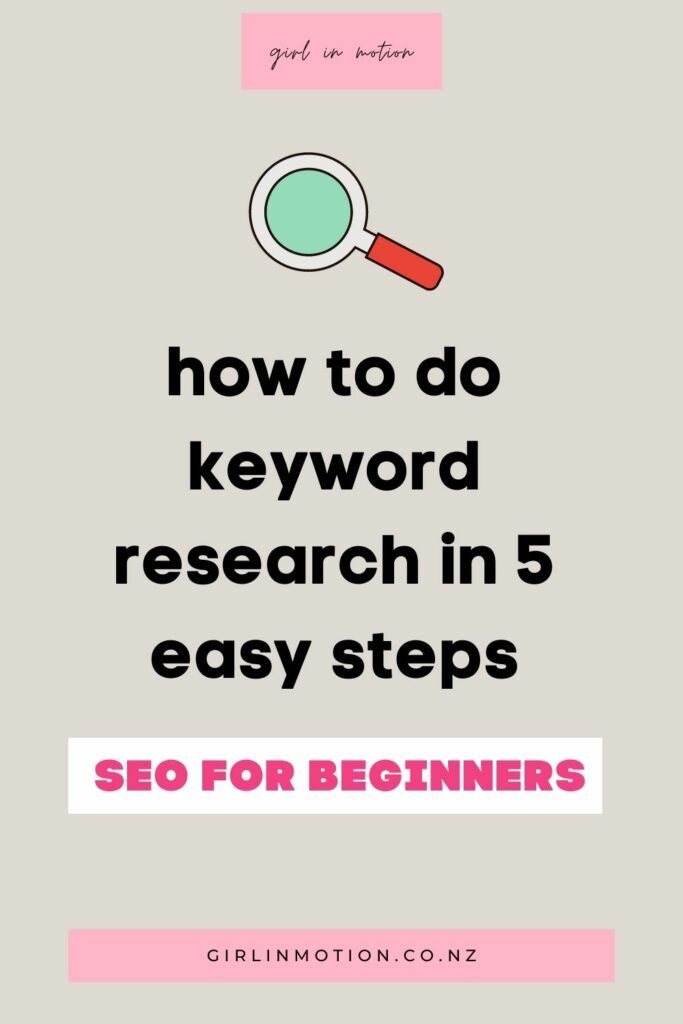
It is all about the keywords
Every single search performed in a search engine (like Google) starts with keywords. These are the words or phrases that an Internet user will type when they search for an answer they are looking for.
Think about how you use Google: every time you search for an answer you are using keywords.
This means that a good first step to improve your search engine visibility is to get into the head of your ideal customer. Think about the kinds of words or phrases they would use to find a business like yours.
Long tail keyword vs short tail keywords
Long-tail keywords are keywords or search phrases that are longer (and more specific) than more commonly used, one-word keywords.
Why does this matter? Because it is a lot easier to rank for a long tail keyword than a short one.
For example, if I type in “bag” (short tail keyword) in Google I get About 6,040,000,000 results. It would be pretty much impossible to rank high for this keyword as the competition is huge.
But if I type in “reusable shopping bag Auckland” (long tail keyword) that gives me About 268,000 results. It would be a lot more likely to rank for that phrase.
Short tail keywords are also usually really generic too, so any traffic that you would get from them is not likely to convert. It is much better to build your SEO strategy by focusing on long tail keywords that are specific for your niche.
Related reading: 7 awesome benefits of having a business niche
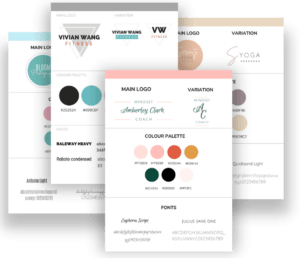
FREE BRANDING BOARDS 🎉
SEO for Beginners: How to do keyword research for your business
This is how you would do a basic keyword research for your business in 5 easy steps.
Step 1 – Keyword brain dump
Put yourself into the shoes of your ideal customer. Write down 10-15 words or phrases that they would type into a search engine to find a business like yours.
Try to focus on long tail keywords.
Step 2 – Head to Google and do further research
Start typing your keywords from step 1 and see what other results come up. For example, if you type in “reusable bag” into the search bar, you get a whole lot of other good ideas:
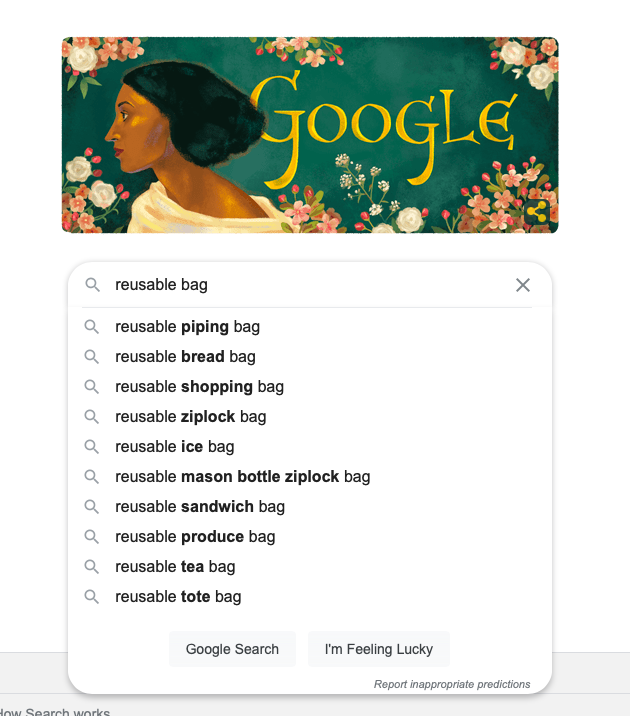
Step 3 – Do further research using a keyword research tool
There are many free and paid tools that you can use to do your keyword research. Two of the most commonly used free options are Google Keyword Planner and UberSuggest.
For this example, I will use Ubersuggest, a free keyword research tool by digital marketing guru Neil Patel. (you only get 3 free searches per day)
Grab your list of keywords (a combination of your brain dump and your Google research) and go to your chosen Keyword Research tool. Enter a keyword on the search area and select a target location.
For example, if I go the the Ubersuggest website and enter the term “reusable bag” and “English/New Zealand” I get the following results:
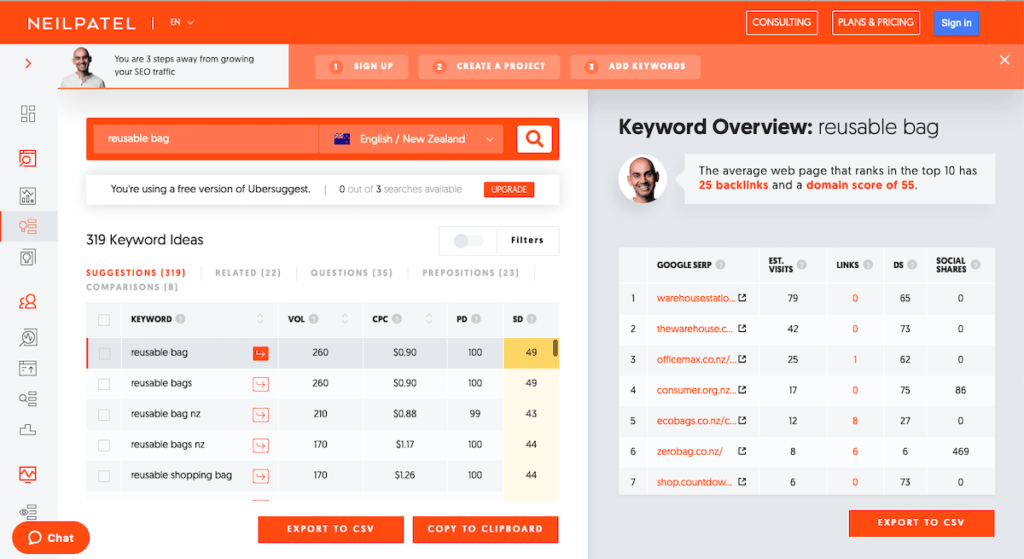
Find new keyword ideas
Go through your list of keywords and look through the ‘Keyword Ideas’ section on the left column. This will give you a list of related keywords that you may not have considered yet. Make sure to check all columns:

Add any new ideas to your keyword list
Step 4 – Assess which are the best keywords to target
By now you should have an updated keyword master list with ideas from:
- Your original brain dump
- Ideas from Google
- Suggestions from your keyword research tool
Now it is time to run these ideas by your research tool to analyse which are the best keywords to target.
Ubersuggest gives us this information on the left column
- VOL (the number of people searching for that keyword every month)
- CPC (how much it would cost per click in average if you were going to do paid Google ads using that keyword)
- PD (Estimated competition in paid search – this is a number from 1-100. The higher the number, the higher the competition)
- SD (Estimated competition in organic search – this is a number from 1-100. The higher the number, the higher the competition)
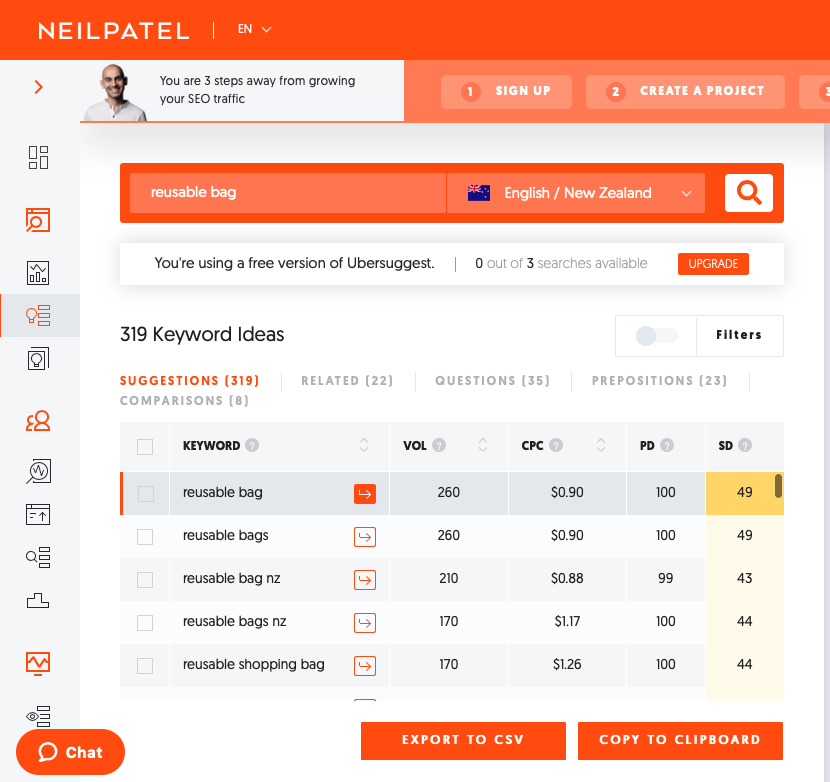
The best keywords to target are generally those for which you have a better chance to rank for and are specific for your niche.
As per the example above, if you started a business selling reusable shopping bags in Auckland, you would not want to try to rank for the keyword “bag”.
You would want to find long tail keywords that are less competitive and niche specific. This will not only give you a better chance of ranking, but would also send the right type of traffic to your site.
Things to look for when analysing keywords
The best keywords to target are those that have a lower difficulty and higher search volumes.
You can also look at the AdWords equivalent of the keyword. This is a good indication of whether a keyword is good to target or not. As a general rule, the higher the CPC value the better the keyword (as this means others are willing to pay more per click, so it is a sign that the keyword is valuable for them)
You should consider how likely you are to rank for your chosen keyword. Have a look at the top 3 results that are listed on the right column under “Google SERP”. If these 3 spots are taken by big and well-established websites, then it would be pretty hard for you to outrank them.

In this reusable bag example, we can see that the top 3 websites are Warehouse Stationery, The Warehouse, and Office Max. These are 3 very well-established New Zealand retailers, so it would be virtually impossible for a new site to rank higher than them under that keyword.
In this case, it could be better to focus on an alternative long tail keyword as you would have a better chance at ranking.
Step 5 – Choose the best keywords to target
Spend some time running your keyword master list through your keyword research tool and highlight the best ones to target by looking at a combination of these factors:
- Search volume (the higher the better)
- CPC (high is good)
- Estimated difficulty (target mainly easy and a few medium when you are just getting started)
- Who are the first 3 websites that come up in Google when you type in the term – are you likely to outrank them (this would be very hard if the top results are taken by trusted and well-established websites)
Step 6 – Write down your updated keyword list
Once you are finished going through the steps above you will have your list of keywords to target!
Keep track of these somewhere. Spreadsheets are really good when it comes to keyword planning.
SEO for beginners: Final thoughts
SEO is not a set and forget type of strategy. You should be doing keyword research regularly to find new keywords to target.
And remember that SEO takes time. Don’t expect to rank for a keyword overnight. However, if you are patient and consistent your efforts will pay off and your rankings will improve over time.

FREE BRANDING BOARDS 🎉



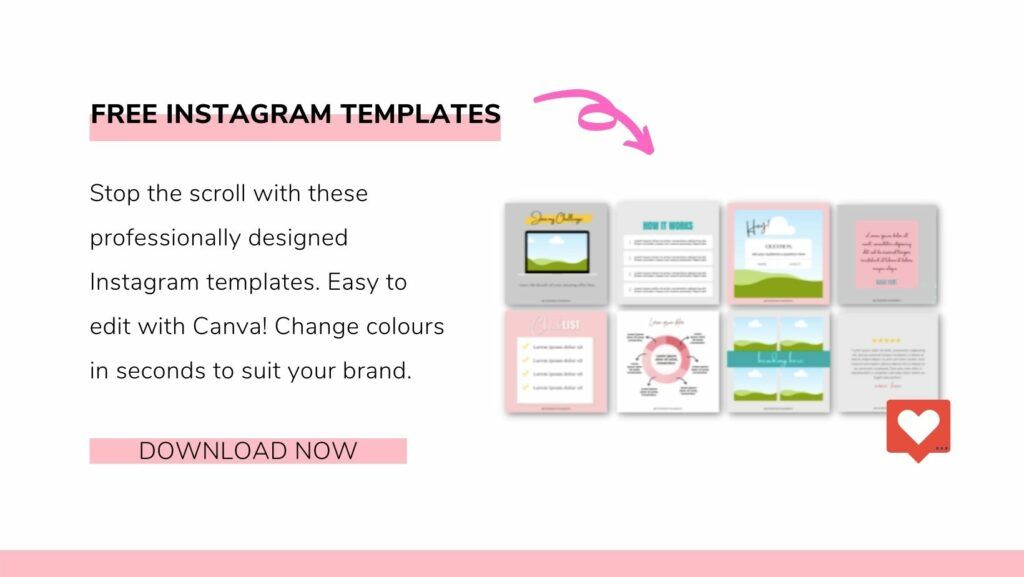
Such a great post!
thank you so much! I am so glad you found it helpful 🙂
Keyword Research is 50% of SEO. Thanks for sharing these amazing techniques to make this process simpler.